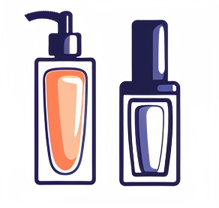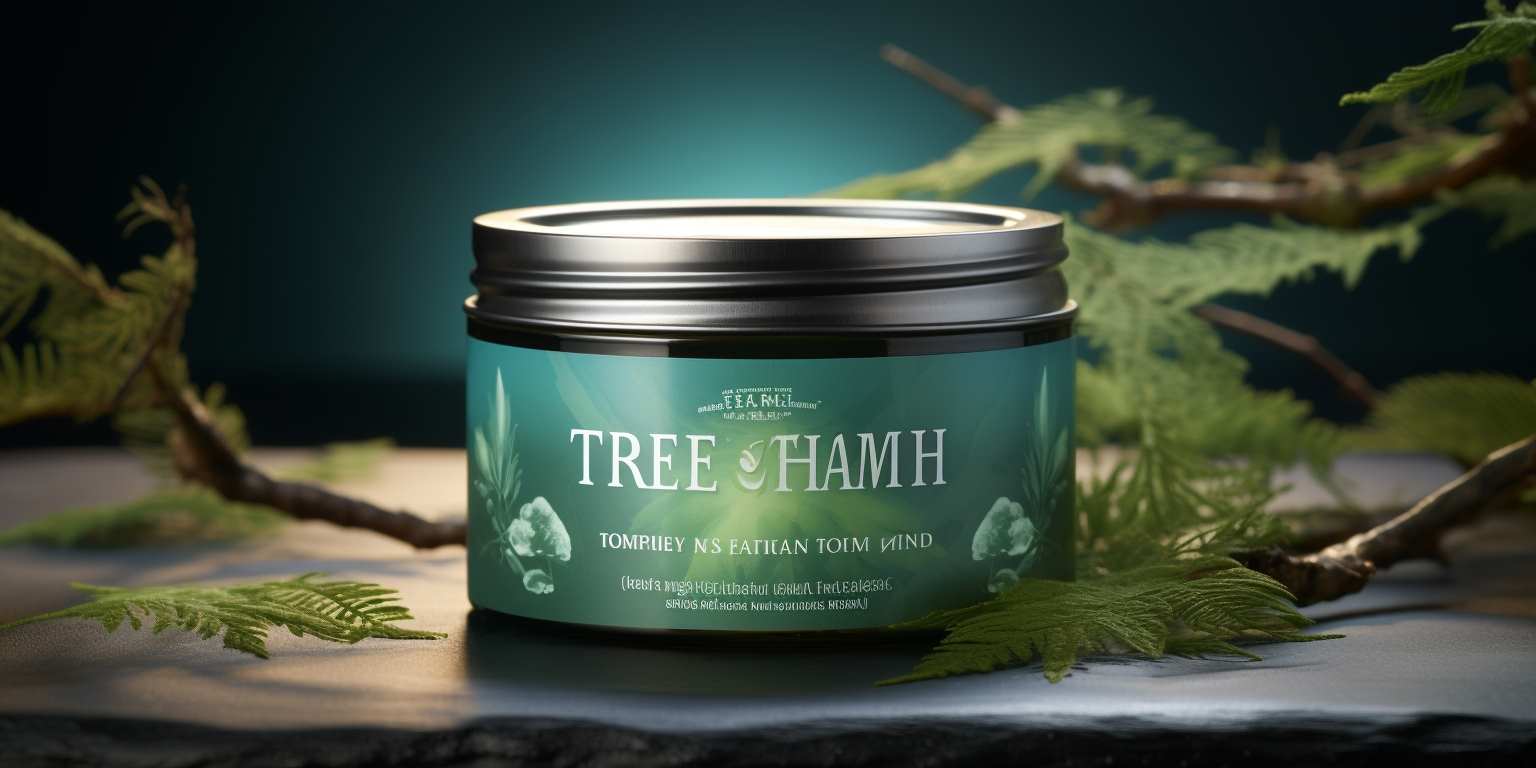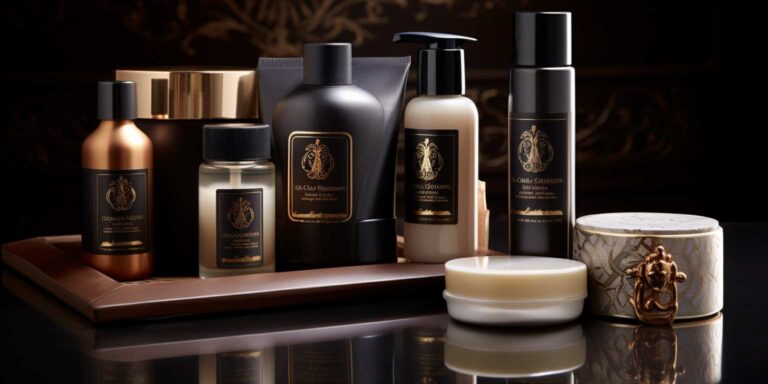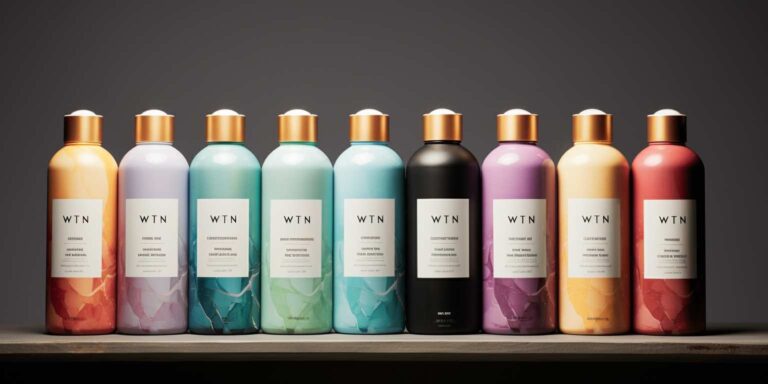Tea tree oil shampoo: a natural solution for healthy scalp
One of the standout features of tea tree oil shampoo is its ability to effectively combat various scalp issues. Whether you’re dealing with dandruff, itchiness, or scalp acne, this shampoo can come to the rescue. Its antimicrobial properties help to cleanse the scalp, removing impurities and excess oil without stripping away natural oils.
Unlike many commercial shampoos laden with harsh chemicals, tea tree oil shampoo offers a gentle yet powerful cleansing experience. It’s suitable for all hair types, including oily, dry, and sensitive scalps. For those struggling with oily hair, tea tree oil helps to regulate sebum production, keeping your hair looking fresh for longer.
For individuals prone to scalp infections such as fungal or bacterial infections, tea tree oil shampoo can be a game-changer. Its antifungal and antibacterial properties help to eradicate these pathogens, promoting a healthier scalp environment. Regular use of tea tree oil shampoo can reduce the risk of recurrent infections, providing much-needed relief.
Tea tree oil shampoo isn’t just about addressing scalp issues; it also promotes overall hair health. It stimulates the hair follicles, encouraging healthy growth and preventing hair loss. Additionally, its anti-inflammatory properties soothe irritated scalp, reducing redness and discomfort.
When shopping for tea tree oil shampoo, it’s essential to choose a high-quality product that contains a significant concentration of tea tree oil. Look for shampoos with pure tea tree oil as one of the main ingredients to reap the maximum benefits.
Scalp soothing shampoo: the relief you need
Scalp soothing shampoo is a blessing for those struggling with irritated, itchy, or inflamed scalps. Whether it’s due to dandruff, eczema, psoriasis, or just general sensitivity, finding relief can be a game-changer. This specialized shampoo is formulated with ingredients like menthol, tea tree oil, and salicylic acid, which work synergistically to calm inflammation, reduce itching, and restore scalp health.
One of the key benefits of using a scalp soothing shampoo is its ability to balance the scalp’s pH levels. When the pH balance is disrupted, it can lead to various scalp issues, including excessive dryness or oiliness. This shampoo helps to restore the natural balance, creating an environment that is conducive to healthy hair growth.
Another advantage is its anti-fungal and antibacterial properties. Many scalp problems stem from fungal or bacterial infections, which can exacerbate irritation and lead to more severe issues if left untreated. By incorporating ingredients like tea tree oil and salicylic acid, this shampoo effectively eliminates these microorganisms, promoting scalp hygiene and preventing further complications.
Furthermore, scalp soothing shampoos are often free from harsh chemicals that can aggravate sensitive skin. Instead, they utilize gentle cleansing agents that cleanse without stripping the scalp of its natural oils. This not only reduces irritation but also maintains the scalp’s moisture balance, leaving hair feeling soft and manageable.
In addition to providing immediate relief, regular use of a scalp soothing shampoo can also prevent future flare-ups. By keeping the scalp clean, balanced, and nourished, it strengthens the skin barrier and improves resilience against environmental aggressors.
When choosing a scalp soothing shampoo, it’s essential to look for clinically tested formulations that are dermatologist-approved. These products have undergone rigorous testing to ensure their efficacy and safety, giving you peace of mind as you soothe your scalp and revitalize your hair.
Anti-microbial hair cleanser: cleanse and protect
Anti-microbial hair cleanser: In the realm of hair care, an anti-microbial hair cleanser stands out as a pioneering solution, amalgamating the prowess of cleansing and protective functionalities. This revolutionary concoction transcends the conventional hair cleansing experience, offering a holistic approach towards maintaining scalp health while safeguarding against microbial invasions.
With a meticulous formulation comprising anti-microbial agents specifically engineered to combat a spectrum of microorganisms, this cleanser pledges not only to cleanse but also to fortify the hair and scalp against potential threats. Its proactive approach towards microbial defense sets a new standard in hair care, ensuring that each wash is not just a routine but a shield against unseen adversaries.
Unlike conventional shampoos that merely cleanse superficially, this anti-microbial hair cleanser delves deeper, penetrating the scalp to purge impurities and thwart microbial colonization. Its efficacy lies in the synergy of cleansing and protective properties, where each component complements the other to provide a comprehensive solution.
Infused with natural extracts renowned for their anti-microbial attributes, this cleanser is a testament to the fusion of science and nature. Ingredients such as tea tree oil, neem extract, and rosemary not only cleanse the hair but also exert potent anti-microbial effects, creating an environment hostile to pathogens.
| Key Features: | 1. Dual Action: Cleanses and protects simultaneously | 2. Anti-microbial: Shields against microbial threats | 3. Natural Ingredients: Infused with botanical extracts |
|---|---|---|---|
| Benefits: | • Scalp Health: Maintains optimal scalp conditions | • Microbial Defense: Guards against microbial invasions | • Revitalization: Nourishes hair for enhanced vitality |
Tea tree oil: the powerhouse ingredient
Tea tree oil, derived from the leaves of the Melaleuca alternifolia plant native to Australia, is a powerhouse ingredient in the realm of natural remedies and skincare. Renowned for its potent antimicrobial, anti-inflammatory, and antiseptic properties, this essential oil has been used for centuries by indigenous Australians for its medicinal benefits.
Antimicrobial properties: One of the key strengths of tea tree oil lies in its ability to combat a wide array of bacteria, viruses, and fungi. Its active ingredient, terpinen-4-ol, targets and destroys harmful microorganisms, making it an effective agent against acne, dandruff, and fungal infections like athlete’s foot and nail fungus.
Anti-inflammatory effects: Tea tree oil’s anti-inflammatory properties make it a popular choice for soothing irritated skin conditions such as eczema, psoriasis, and insect bites. Its ability to reduce redness, swelling, and itching provides relief and accelerates the healing process.
Antiseptic qualities: Due to its natural antiseptic nature, tea tree oil is commonly used to cleanse wounds, cuts, and abrasions. Its disinfectant properties help prevent infection and promote faster healing, making it a staple in many first-aid kits.
When applied topically, tea tree oil should be diluted with a carrier oil to prevent skin irritation, as its concentrated form can be harsh on sensitive skin. However, when used appropriately, it can deliver remarkable results without the need for harsh chemicals or synthetic additives.
Moreover, tea tree oil’s versatility extends beyond skincare. It can be used as a natural household cleaner, effectively eliminating mold, mildew, and bacteria from surfaces. Its refreshing scent also makes it a popular choice for aromatherapy, promoting relaxation and mental clarity.
Despite its numerous benefits, it’s essential to exercise caution when using tea tree oil, especially in its undiluted form. Allergic reactions and skin sensitivities may occur in some individuals, so it’s advisable to perform a patch test before extensive use.
Maximizing the benefits of tea tree oil shampoo
Tea tree oil shampoo offers a plethora of benefits, making it a staple in many hair care routines. Derived from the leaves of the Melaleuca alternifolia plant native to Australia, tea tree oil possesses remarkable antibacterial and antifungal properties. When infused into shampoo, it becomes a potent solution for addressing various scalp and hair issues.
Dandruff Relief: One of the most notable benefits of tea tree oil shampoo is its ability to combat dandruff. Dandruff, caused by the overgrowth of Malassezia fungus, leads to scalp irritation and flaking. The antifungal properties of tea tree oil help to alleviate dandruff by controlling the growth of this fungus.
Calms Itchy Scalp: An itchy scalp can be incredibly uncomfortable and often accompanies conditions like dandruff or psoriasis. Tea tree oil shampoo provides relief by soothing the scalp and reducing itchiness. Its anti-inflammatory properties help to calm irritation, making it an ideal choice for those with sensitive scalps.
Regulates Oil Production: Tea tree oil has the ability to regulate the production of sebum, the skin’s natural oil. For individuals with oily hair, this is particularly beneficial as it helps to prevent the scalp from becoming excessively oily, thereby reducing the frequency of hair washing.
Promotes Hair Growth: Tea tree oil shampoo stimulates the hair follicles and improves blood circulation to the scalp, promoting healthy hair growth. By nourishing the hair follicles and removing any buildup or blockages, it creates an optimal environment for hair to thrive.
Prevents Lice Infestation: Tea tree oil has long been used as a natural remedy for lice infestation. Its antimicrobial properties make it effective in repelling lice and preventing their eggs from hatching. Regular use of tea tree oil shampoo can act as a deterrent against lice, especially for those prone to infestations.
Strengthens Hair: Weak and brittle hair can benefit from the strengthening properties of tea tree oil shampoo. It helps to fortify the hair shaft, reducing breakage and split ends. With continued use, hair becomes stronger, more resilient, and less prone to damage.
How to Maximize Benefits: To maximize the benefits of tea tree oil shampoo, it’s important to use it correctly. Begin by thoroughly wetting your hair, then apply a small amount of shampoo and massage it into the scalp. Allow it to sit for a few minutes to allow the tea tree oil to penetrate the hair follicles before rinsing thoroughly.
Caution: While tea tree oil is generally safe for most people, it can cause irritation or allergic reactions in some individuals. It’s recommended to do a patch test before using any product containing tea tree oil, especially if you have sensitive skin.
Tea tree oil shampoo for every hair type
Tea tree oil shampoo offers a natural solution for all hair types, catering to a diverse range of needs with its versatile benefits. Extracted from the leaves of the Melaleuca alternifolia plant, tea tree oil has been prized for its antibacterial, antifungal, and anti-inflammatory properties. When infused into shampoo formulations, it becomes a potent elixir for maintaining healthy hair and scalp.
One of the key advantages of tea tree oil shampoo is its ability to combat dandruff and dry scalp. Its antimicrobial properties help to eliminate the fungus Malassezia, which is often responsible for dandruff. Additionally, it soothes itching and irritation, providing relief to those with sensitive scalps.
For individuals with oily hair, tea tree oil shampoo serves as an effective cleanser that removes excess oil and impurities without stripping the scalp of its natural oils. It helps to balance oil production, leaving the hair feeling fresh and revitalized.
Tea tree oil shampoo also promotes hair growth and strengthens follicles, making it suitable for those seeking to enhance the thickness and vitality of their hair. By unclogging hair follicles and nourishing the scalp, it creates an optimal environment for healthy hair growth.
Furthermore, tea tree oil shampoo is gentle enough for daily use yet powerful in its effects. It is free from harsh chemicals like sulfates and parabens, making it suitable for individuals with sensitive skin or those seeking organic alternatives.
Whether you have dry, oily, normal, or sensitive hair, incorporating tea tree oil shampoo into your hair care routine can yield remarkable results. Its versatility and multifaceted benefits make it a valuable addition to any hair care regimen.
Avoiding common mistakes with tea tree oil shampoo
Tea tree oil shampoo is renowned for its myriad benefits, ranging from its antifungal and antibacterial properties to its ability to promote scalp health. However, to truly reap the rewards of this potent natural remedy, it’s crucial to navigate potential pitfalls. Let’s delve into common mistakes with tea tree oil shampoo and how to avoid them.
One frequent misstep is overuse of tea tree oil shampoo. While it’s tempting to douse your hair in this fragrant elixir, doing so can lead to dryness and irritation. Remember, a little goes a long way. Aim for a diluted mixture, typically around 5% tea tree oil, to strike the perfect balance between efficacy and gentleness.
Another pitfall lies in improper application. Tea tree oil is potent, and applying it directly to the scalp can cause burning and itchiness. Always dilute it with a carrier oil, such as coconut or olive oil, before use. Additionally, ensure thorough rinsing to prevent residue buildup, which can exacerbate oiliness and scalp issues.
Many individuals overlook the importance of patch testing before incorporating tea tree oil shampoo into their routine. This simple yet crucial step can prevent adverse reactions and allergic responses. Apply a small amount of diluted shampoo to a discreet area of skin, like the inner forearm, and monitor for any redness, swelling, or itching over 24 hours.
It’s also essential to select a high-quality tea tree oil shampoo from a reputable brand. Read labels carefully to ensure the product contains pure tea tree oil without unnecessary additives or harsh chemicals. Opting for organic or certified options can further guarantee the integrity and efficacy of the product.







